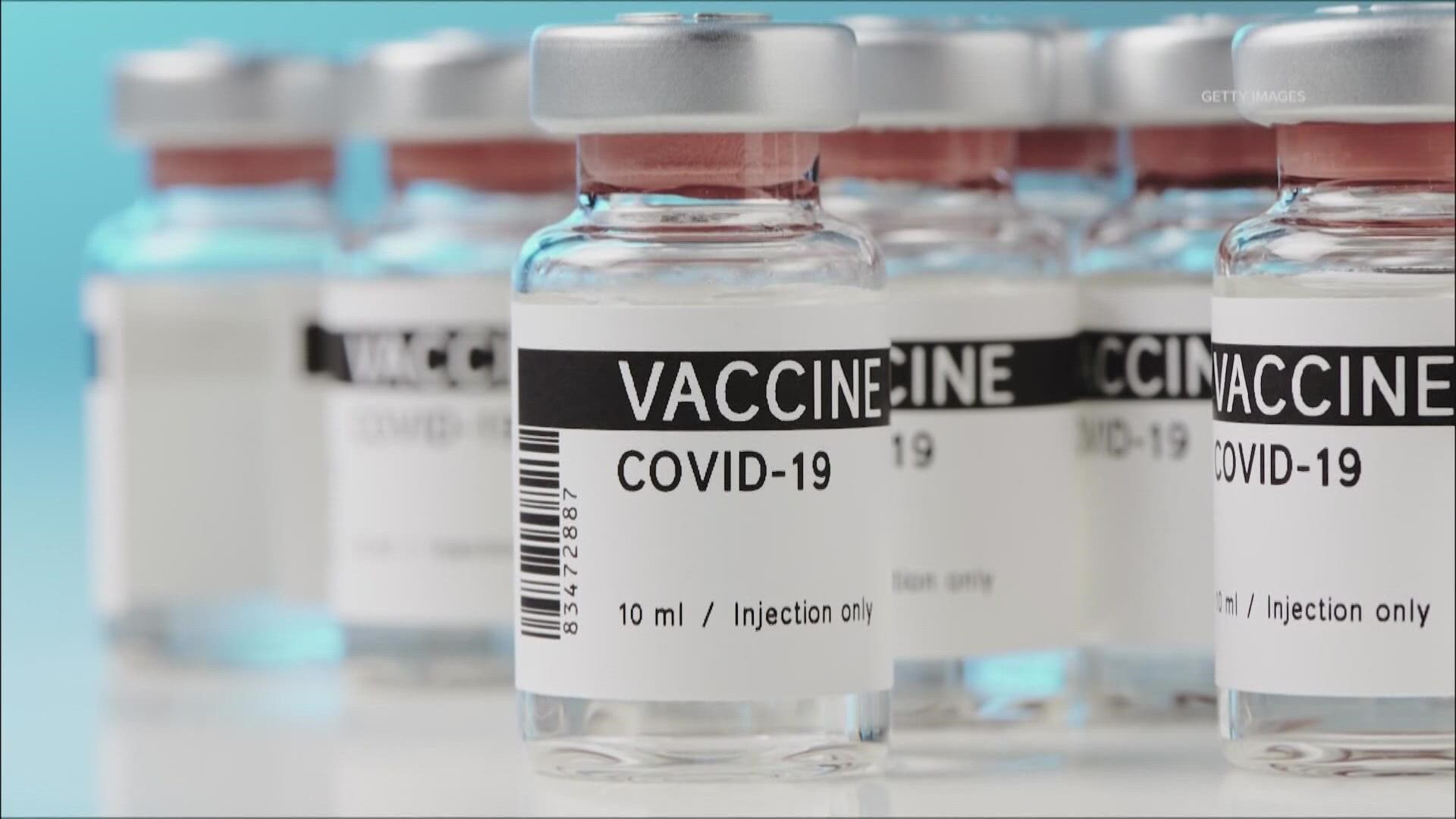DALLAS — Imelda Garcia chairs Texas’s Expert Vaccine Allocation Panel.
But she’s also a mom, and 19 months into the global coronavirus pandemic, her child is finally almost eligible for a vaccine.
“I can tell you that my daughter will be vaccinated, and I’m really excited about that,” she said. “It’s not only for my daughter’s health and safety. Vaccinating her protects our extended loves ones.”
Garcia’s daughter is among the 2.9 million Texas kids between the ages of 5 and 11 who are expected to be eligible for Pfizer’s pediatric COVID-19 vaccine in early November.
Garcia is also associate commissioner for laboratory and infections disease services for the Department of State Health Services.
She made the comments about her daughter during a news conference in which she unveiled new data about the rollout of pediatric COVID vaccines in Texas.
The federal government created what she called a “preorder prior to launch,” enabling states to order doses of Pfizer’s pediatric shots even before FDA authorization or the CDC recommendation.
The state is being allocated about 1.3 million doses of the vaccine, which will arrive in waves in the coming days.
The first wave of doses should ship to Texas within one to five days of the FDA issuing an emergency use authorization for Pfizer.
That authorization could come soon after an FDA panel meets Oct. 26.
The second and third waves of doses will ship to Texas between five and nine days after the authorization is issued.
More than 800 pediatricians, hospitals and clinics in 120 Texas counties will receive those first shipments.
The CDC’s advisory council on immunization practices, or ACIP, meets Nov. 2 and 3.
Some providers in Texas could receive doses even before the CDC recommendations become official.
“Administration can only begin after the CDC director, Dr. Rochelle Walensky, signs the clinical recommendations made by ACIP,” Garcia stressed.
Garcia said more than 130 Texas counties will not receive vaccine in these first waves because no providers in those areas placed orders with the state.
The state is ramping up outreach efforts in those counties, Garcia said, letting doctors know that administering shots has become easier than when the vaccines first came out in 2020.
Ultra-cold storage is no longer required. A regular refrigerator is now acceptable. And doses can be ordered and shipped in smaller numbers.
More than 700 pharmacies in Texas are receiving allocations directly through the federal retail program, Garcia said, which that means it is possible some counties that don’t have doctors providing pediatric shots might have pharmacies that are.
The shot is a two-dose regimen that is less concentrated than shots produced for adults.
“Within three weeks the child can have the second dose and a couple weeks later the child will be fully vaccinated,” said Saroj Rai, senior scientific advisor for DSHS.
Garcia said the goal is to make the vaccine available in as many places as possible across the state, so they will be working with counties to set up community clinics.
They are also working with counties to set up clinics in schools.
But Garcia recognizes many families will likely feel most comfortable having their child vaccinated by a pediatrician they already know and trust.
“We really want to leverage every provider across the state that’s eligible to receive the vaccine,” she said.
Garcia encouraged parents to use vaccines.gov, a federal website, to find a shot for kids if their pediatrician’s office is not offering it. The website will be updated once shots are authorized and approved.

